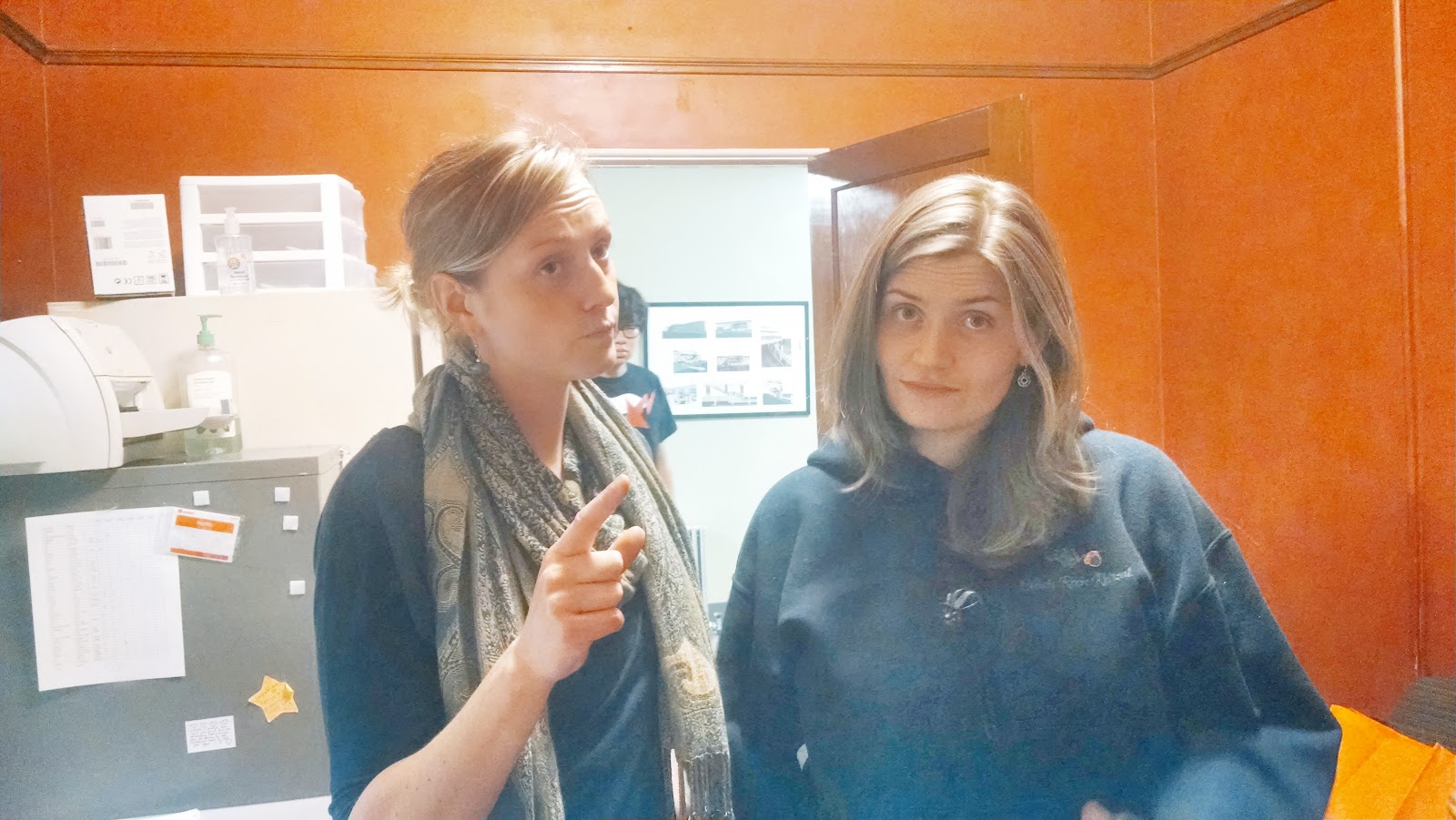I've told you before about the
mother robin in her nest that's visible from the dorm office, in a small, gratuitous vista where the windows line up just so. This mother robin may be a different one from that of prior posts, I'm not sure, for she seems to remain quite aloof, never drawing near when some human inhabits the porch. Her babies just hatched three days ago, but had made not a stir upon their arrival, and so I had assumed they were still eggs.
Around 7:30 yesterday morning, I was performing whatever office duties are necessary in those three hours before another soul is awake on a weekend, when a giant, malevolent crow swooped under the gable, batted its wings for a moment in front of the nest, and flew off once more, carrying a hatchling in its beak. In the process, the entire nest was knocked to the ground, leaving four newly-hatched robin babies barely moving about on the cement porch.
A pitiful sight it was: one little brother with tiny fuzzy feathers inched himself around on the porch, subject to the biting morning wind. A smaller one fell out of the sideways nest, and rolled a bit, but could not lift his own head. Neither were old or strong enough, it seemed, even to chirp.
I am ashamed to say my reaction was merely to watch with heartache. I thought surely there was nothing I could do. I had the notion that if I interfered, the mother would not touch her babies again, or worse, I might be subjecting myself to some kind of bird disease. Gloves occurred to me, but only in passing.
Grace, an ambitious, excited tenth-grader who hopes to be a crime scene investigator, had just woken up, and was now keeping vigil with me. Her first remarks, I think, had to do with perhaps intervening, but I gave her my thoughts on the subject, which made her feel that it was impossible to save them. Dissuaded, she began to expound without abstraction on the Darwinian example before us, even asking if she might be permitted to dissect one of the unfortunates. I told her it would be indecent to discuss the matter until they were certainly dead.
The mother robin had returned to find her hard-built nest fallen, one baby taken, another (a large, but entirely featherless one) sprawled out in death, and three barely moving but to shiver. She squawked in anger from the deserted perch. Another robin hailed her, and they surveyed the wreckage. It was tragic; how can I tell you? I wanted to know how an animal comes back after such a devastation; could I learn from her example? She moved from floor to perch to ground to banister, chirping about her losses to the wide sky and the robin world. The crows were not listening. She could not rescue her babes.
Finally, Grace and I surveyed the disaster up close instead of through a window. It looked so easy to push the creatures back into their nest, and put the nest back. Grace was already arrayed in gloves, and fearless, ready for the impending and promised dissection. Without needing the ladder, she had all the living back in place before I had even arrived. We went away, hoping the mother would not reject her young despite our meddling.
But Robin did no such thing. She seemed overjoyed to have her life re-assembled for her. A day later, I see three little craning necks supporting three tiny and vigorous beaks in their rescued nest. The mother flies in and out, in and out to give them each their fill. She needed help. Grace had the courage to give it.
What became of the dead baby bird? I wish I could skip this part: Grace dissected it on a foam plate on the table.


